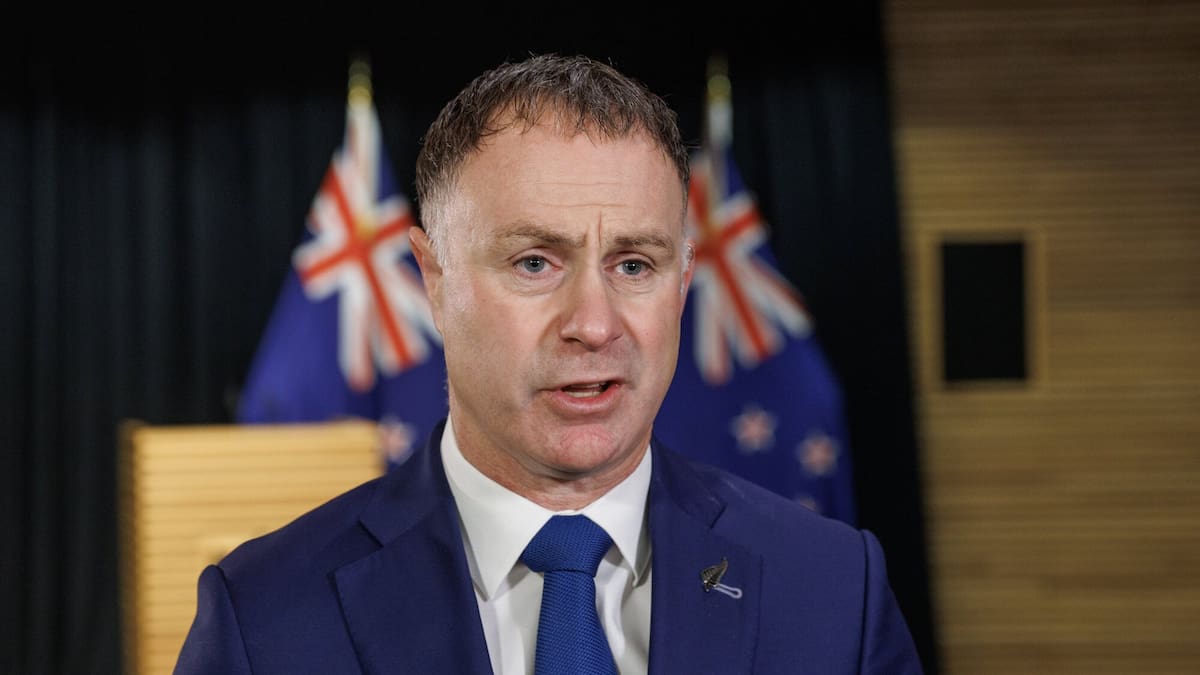Necklen said that pursuing the KiwiSaver change has been on LGNZ’s agenda since 2023.
However, even proponents of the proposed change acknowledged that the current timing of the request was especially inauspicious.
Nelson Deputy Mayor Rohan O’Neill-Stevens at the LGNZ conference in Wellington. Photo / Laura Smith
In recent years, councils’ rates have soared – according to ANZ, they rose between 7% and 12% a year, on average, in each of the last four years.
Nelson Deputy Mayor Rohan O’Neill-Stevens said councils support the proposed KiwiSaver change as a way to help draw a wider range of people into local government, especially young people who are still making provision for their financial security.
However, O’Neill-Stevens acknowledged that making that request of ratepayers is “always awkward” and especially so when rates across the country are rising so quickly.
The councils argued that local representatives should not be counted as self-employed and that their situation is most akin to that of MPs, who enjoy extraordinary employer superannuation contributions.
MPs are entitled to generous superannuation payments in addition to their salaries, under terms set by the Remuneration Authority.
MP employer superannuation contributions now reach a maximum of $35,500 per year – the terms require the employer, effectively the Crown, to pay 2.5 times the personal contribution, up to a maximum of 20% of an ordinary MP’s $177,600 salary.
The contribution can be made to KiwiSaver or other retirement savings schemes.
LGNZ’s request was made as Watts was preparing to cut billions of dollars worth of Government contributions to the KiwiSaver programme. Watts is also Revenue Minister.
Watts told the Herald he is not considering making any change to the KiwiSaver arrangements or any other benefits for local government members.
The Government recently raised the pay for public board members and argued that it was warranted to attract better candidates; Watts said he would not apply that rationale to local government representatives.
Local members are paid from their councils’ revenue, primarily derived from property-based rates and their pay levels, which vary for council size, are set by the statutorily independent Remuneration Authority.
The Inland Revenue Department (IRD) also provided a brief and unfavourable view of the LGNZ proposal.
Finance Minister Nicola Willis, during the reading of the 2025 Budget, which cut an estimated $2.5 billion of Crown cost from KiwiSaver over four years. Photo / Mark Mitchell
Its officials noted that Inland Revenue is generally supportive of access to KiwiSaver, however its concerns with the LGNZ proposal included how it fit with the wider KiwiSaver scheme, in which the self-employed are ineligible for employer contributions.
“In our view consideration of self-employed should be taken as a wider question, rather than in an ad hoc manner for certain groups,” agency officials recorded in an April briefing for members of Watts’ staff.
Budget 2025 KiwiSaver changes
The suite of KiwiSaver changes introduced through Budget 2025 requires an increase to employer KiwiSaver contributions from 3% to 4% by 2027.
IRD officials described the changes as a “switch”, whereby employer contributions rise and compensate for a heavy reduction in the Government’s contribution.
The Budget halved the Government’s maximum KiwiSaver contributions; as of July, it dropped from $521.43 to $260.72 per annum. Also, the Government contribution for those earning over $180,000 a year was eliminated, and Government contributions were extended to those aged 16 and 17.
The Government KiwiSaver contribution previously cost roughly $1 billion per year and a saving of some $2.5b is expected to result from the changes over the next four years.
This switch, however, will have uneven effects on workers: the self-employed are considerably worse off and those employed on “total remuneration contracts” will also be disadvantaged to the degree that they’ll lose some government contributions and will essentially pay for the increased employer contributions themselves.
The IRD describes “total remuneration contracts” as those where KiwiSaver members fund their employer contribution out of their total wage or salary package.
In the long run, the higher employer contributions are likely to be footed by all other employees too, through lower wage growth or adjustments in other benefits.

